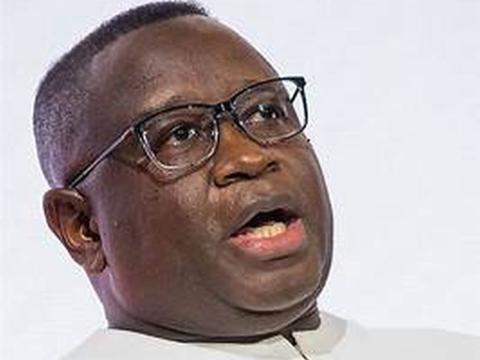By Sorie Ibrahim Fofanah
Sierra Leone’s president Julius Maada Bio has promised inclusivity, transparency, and accountability in the ongoing Constitutional Review Process.
Bio made this statement at the Special Presidential Development Partnership Committee (DEPAC) Meeting in Freetown on 11th April 2024.
“We must continue to be guided by the principles of inclusivity, transparency, and accountability. The voices of all Sierra Leoneans must be heard and considered throughout the process,” he emphasized.
Speaking about the committee, he maintained that it must serve as a platform for dialogue, debate, and consensus-building, ensuring that every citizen feels represented and valued.
He recalled that the government and partners have been part of the process since it started seventeen years ago, calling on all to work together to bring the process to a conclusion. “Your continued support is crucial to strengthening our democratic and governance architecture,” he stated.
Bio promised to leave legal legacies that will enhance the country’s democratic future by the time he leaves office.
He urged all citizens to approach the review process with diligence, integrity, and a “deep” sense of patriotism, noting that the decisions they make will shape the future of the country for generations to come.
He expressed delight as they approach the concluding phase of the Constitutional Review Process, reflecting on their collective journey which has spanned nearly two decades.
He noted that the constitutional review process is not a mere revision of a legal document but a “transformative” journey that will “redefine” the future of the nation, highlighting comprehensive inclusivity and ensuring the constitution remains rigid.
“Sierra Leone has come a long way since the adoption of our current constitution. Collectively, we understand that no document is perfect or immutable, hence the need for this crucial Review Process,” the president said, further noting that it is not just a duty but a shared responsibility to ensure that the Constitution truly represents the aspirations of the citizenry.
He mentioned that he made a vow prior to him becoming President to conclude the constitutional review process, which he described as a fruit of the Lomé Peace Agreement in 1999 and a recommendation of the nation’s Truth and Reconciliation Commission (TRC), which was initiated in the aftermath of the civil war in 2002. “Today, I am before you, reiterating my unwavering commitment to this pledge,” Bio stated.
“The TRC recommended the revision of the Constitution through a wide and thorough consultative and participatory process that must lay the foundations for a democratic and open society in which every citizen is equally protected by the law,” Bio further said.
In his statement, the Attorney-General and Minister of Justice, Mohamed Lamin Tarawalley noted the President had earlier issued directives to them for the conclusion of the constitutional review process, urging them to make the process participatory, inclusive, and of national interest.
“The Constitutional Review Committee’s report is a product of wide consultations, which reflect the views and participation of various facets of Sierra Leonean society. Indeed, the Constitutional Review Committee, which operated from 2013 to 2017 held consultations and undertook extensive public engagements to make sure that its report is reflective of the views of a wide facet of Sierra Leonean society,” Tarawalley maintained.
Giving an update on the activities of the committee, he disclosed that many public consultations with various stakeholders nationwide were conducted that targeted Women, Youths, Political Parties, Paramount Chiefs, Local Councilors, Civil Society Organisations, the Media, and Lawyers.
“The Office of Attorney General and Minister of Justice is now in the process of finalizing the technical details for the conclusion of the CRC process,” he disclosed.
After Sierra Leone’s civil war ended in 2002, a Truth and Reconciliation Commission (TRC) was set up to look into the causes of the conflict and how it could be prevented from happening again. One of the key recommendations of the TRC was for the establishment of a constitutional review process due to realisation that many of the laws were outdated.
Efforts to reform the country’s constitution were first prioritised by late President Ahmad Tejan Kabbah who supported the establishment of the Peter Tucker Commission to review the country’s laws.
Not much progress was made because of the turbulent state of the country due to the civil war Tucker passed away in 2017. Kabbah’s successor Ernest Bai Koroma then appointed the late Justice Edward Cowan to head a similar constitutional review committee, because the contents of the review process were not broadly based. A Government white paper on the constitutional review committee’s work was published in 2017.
Copyright © 2024 Politico Online (12/04/24)








